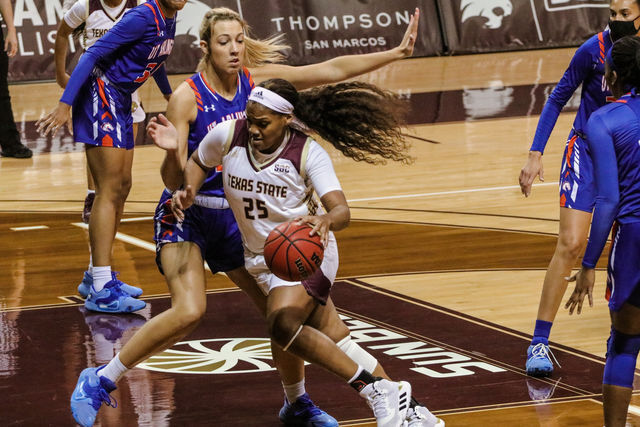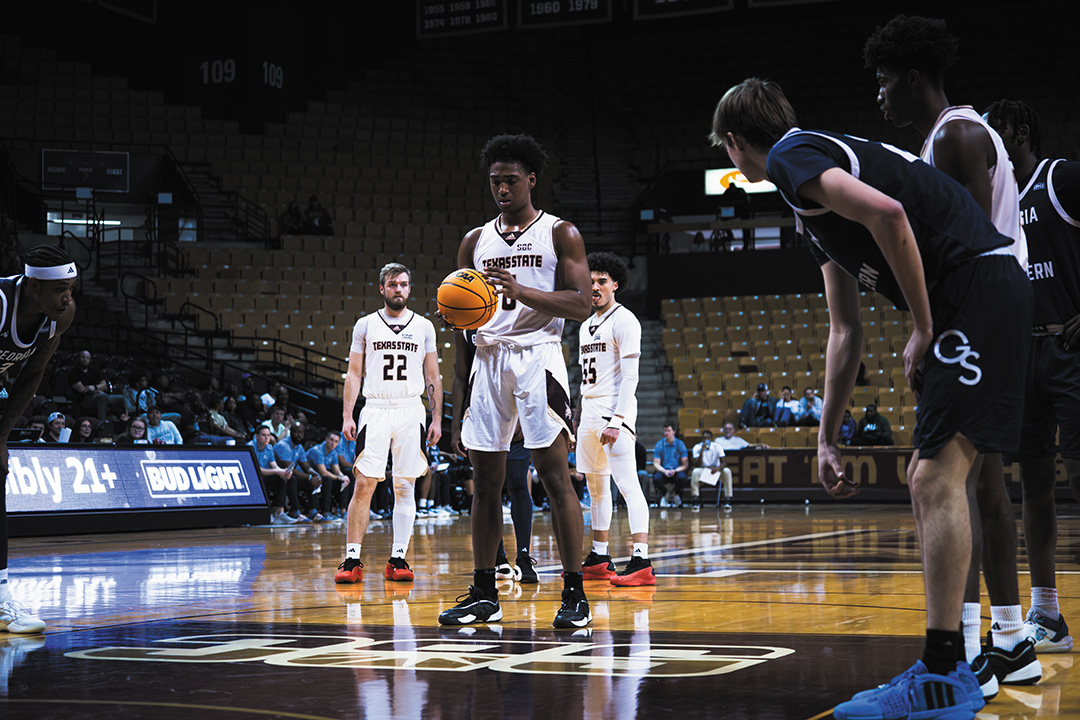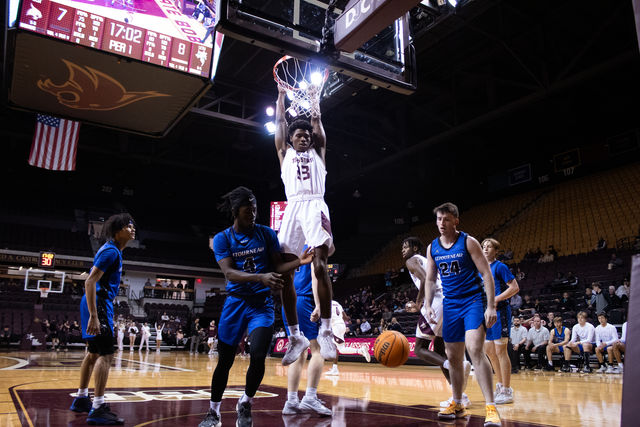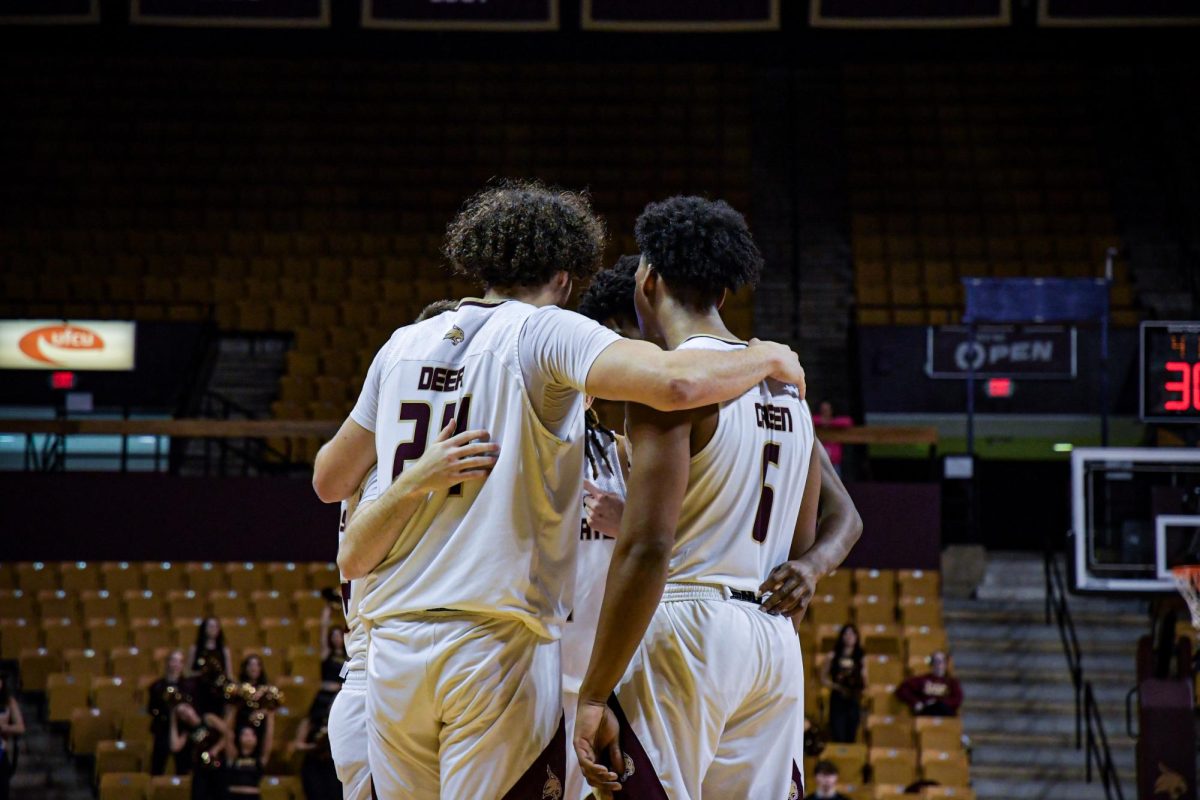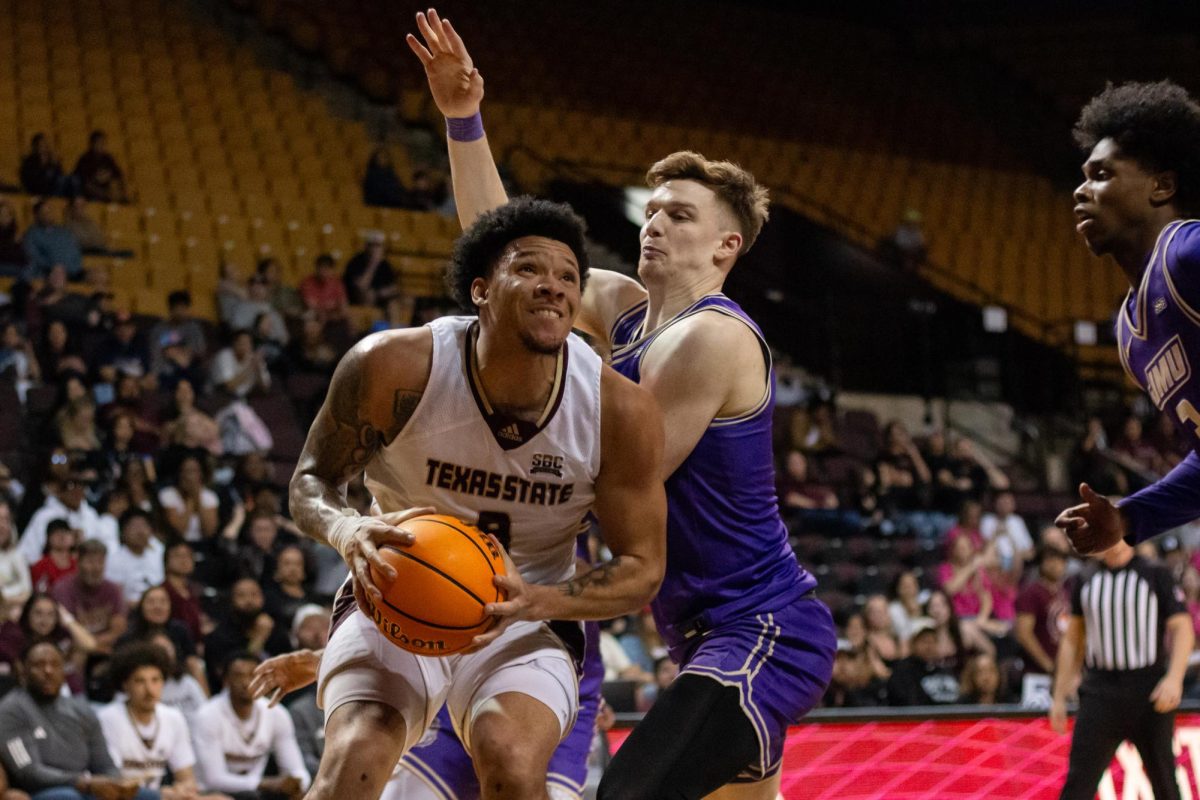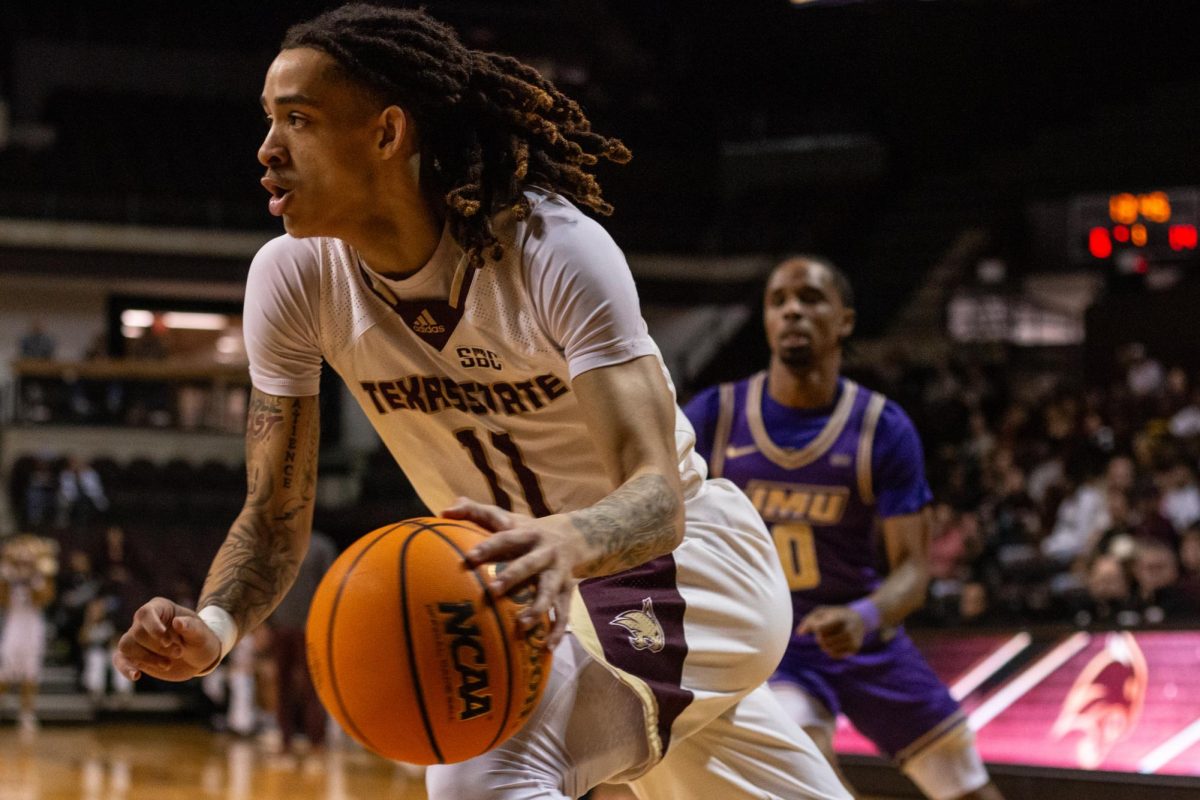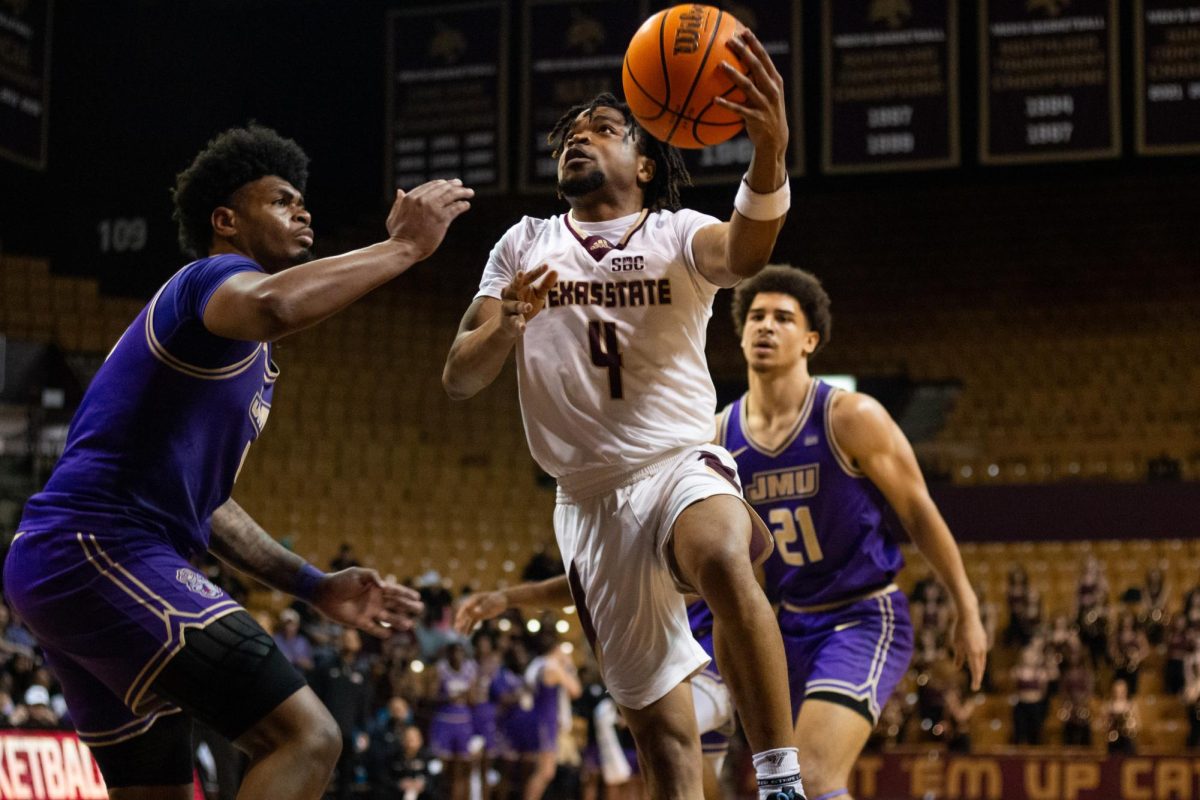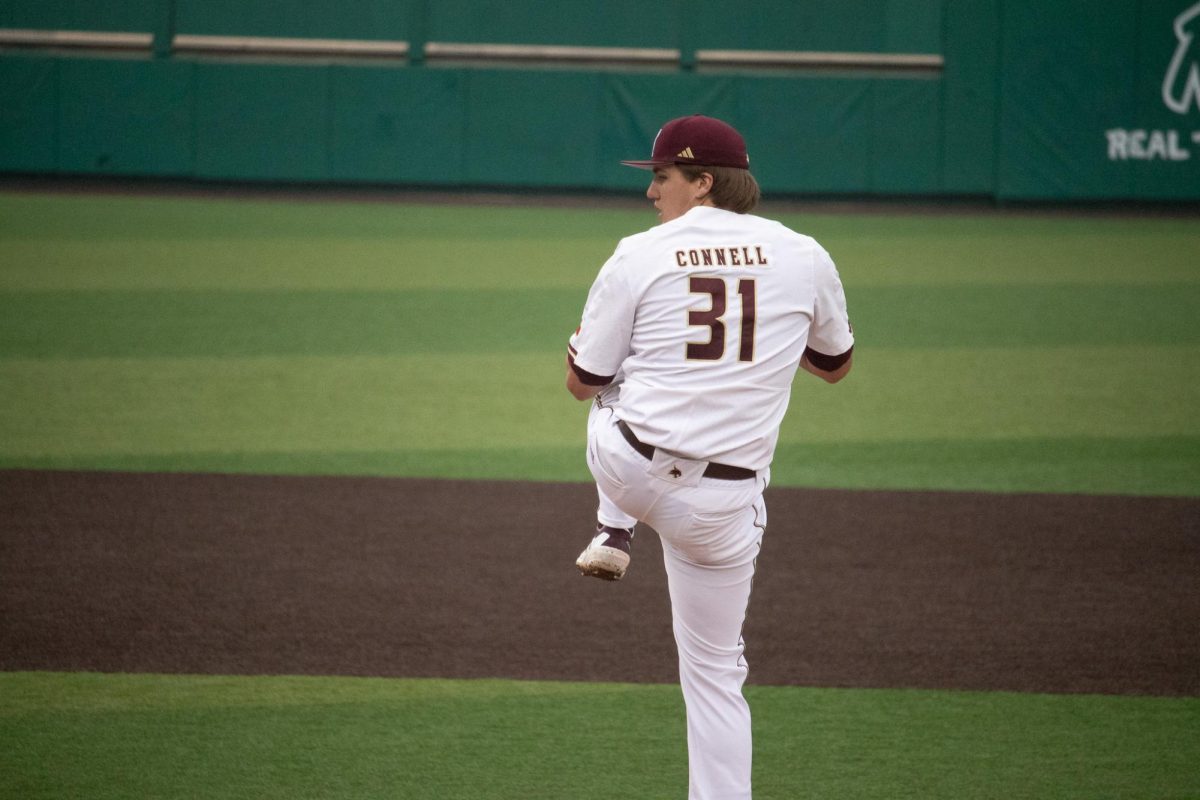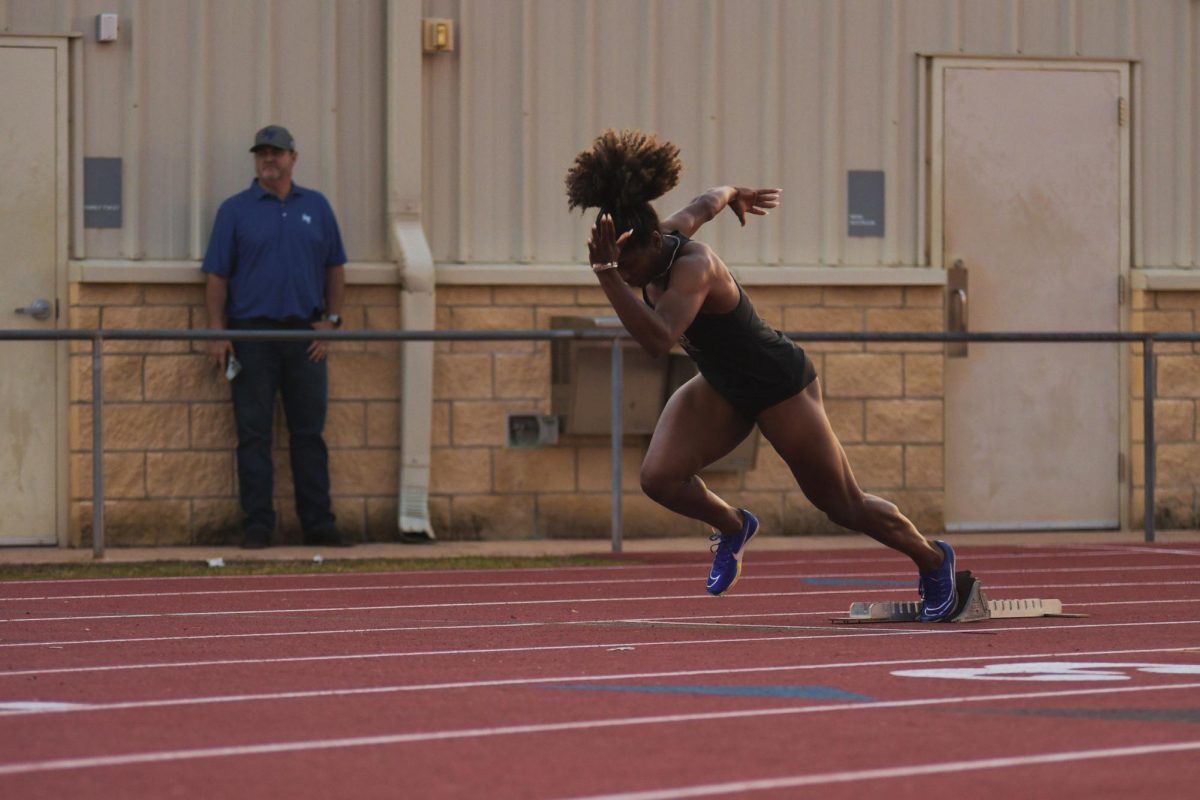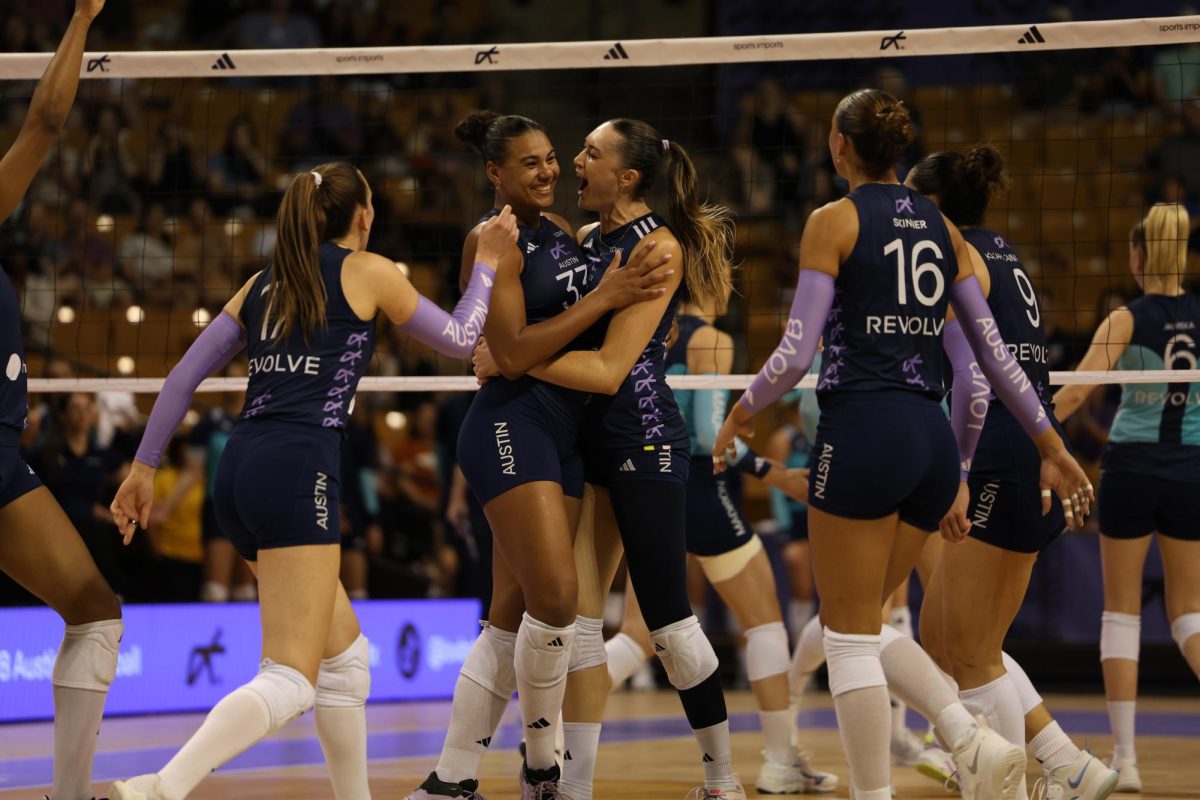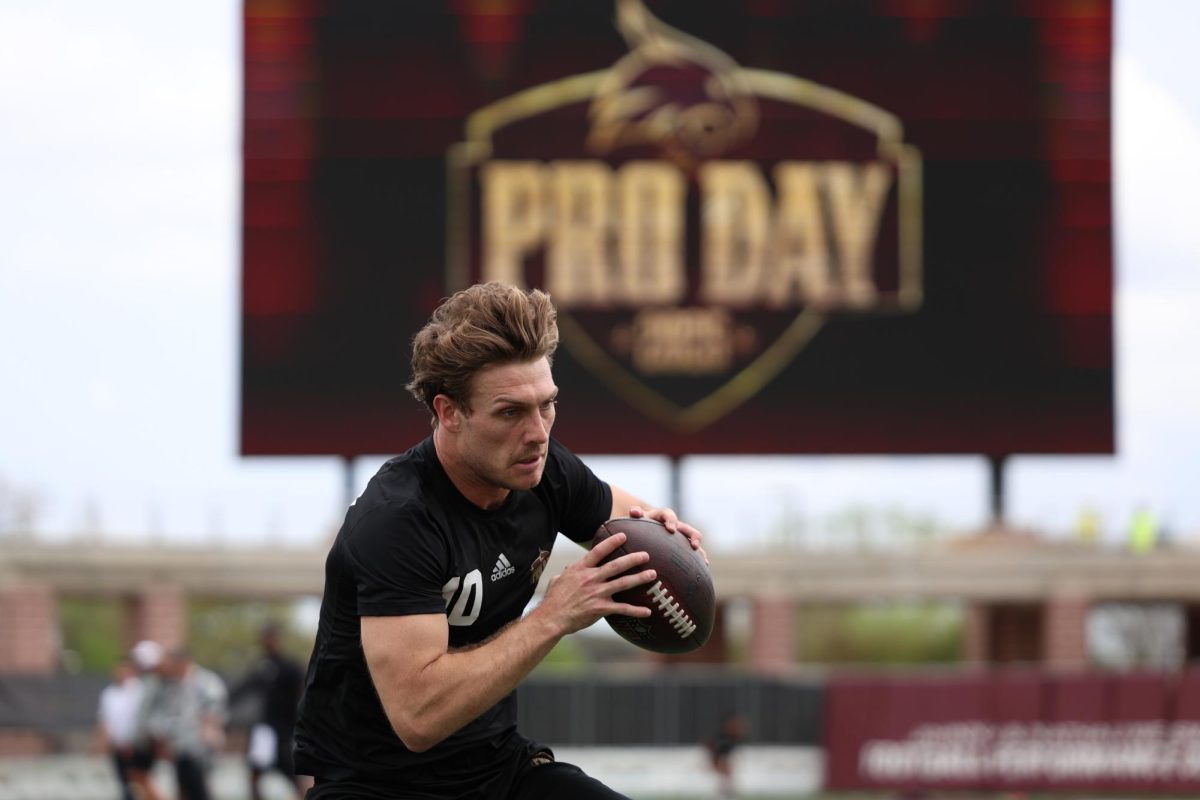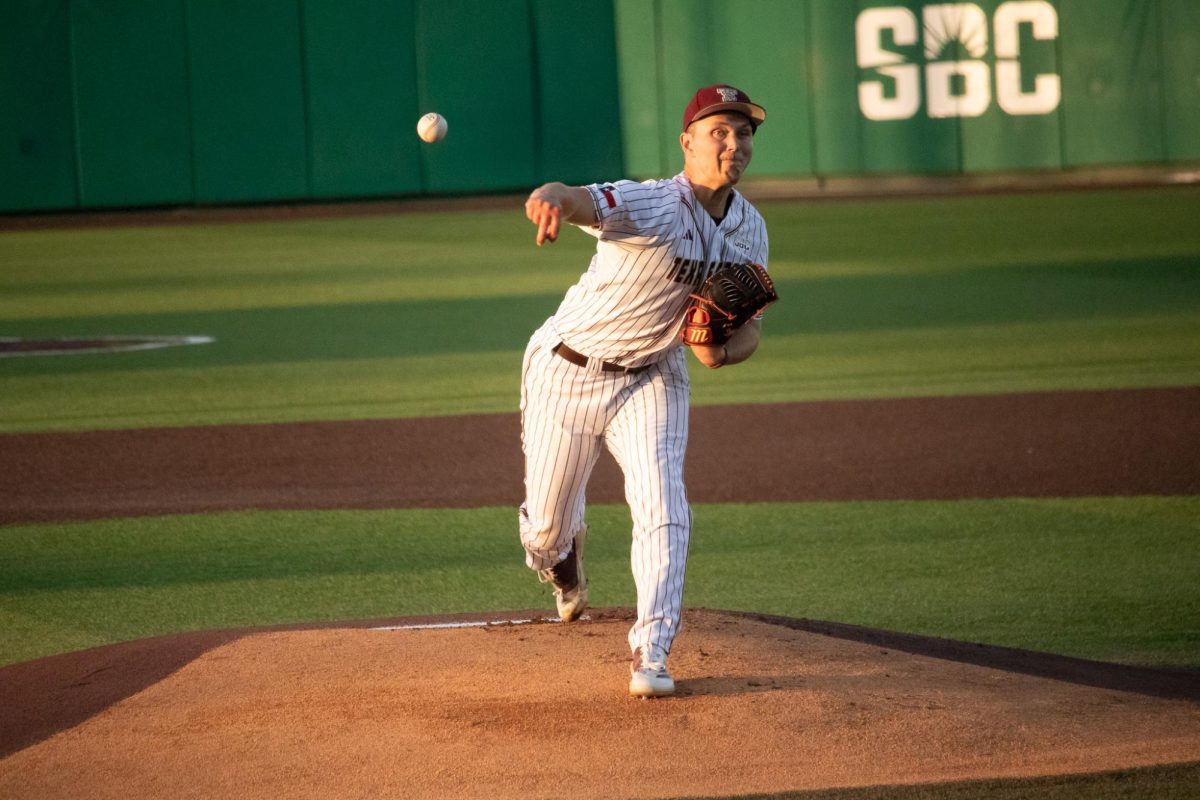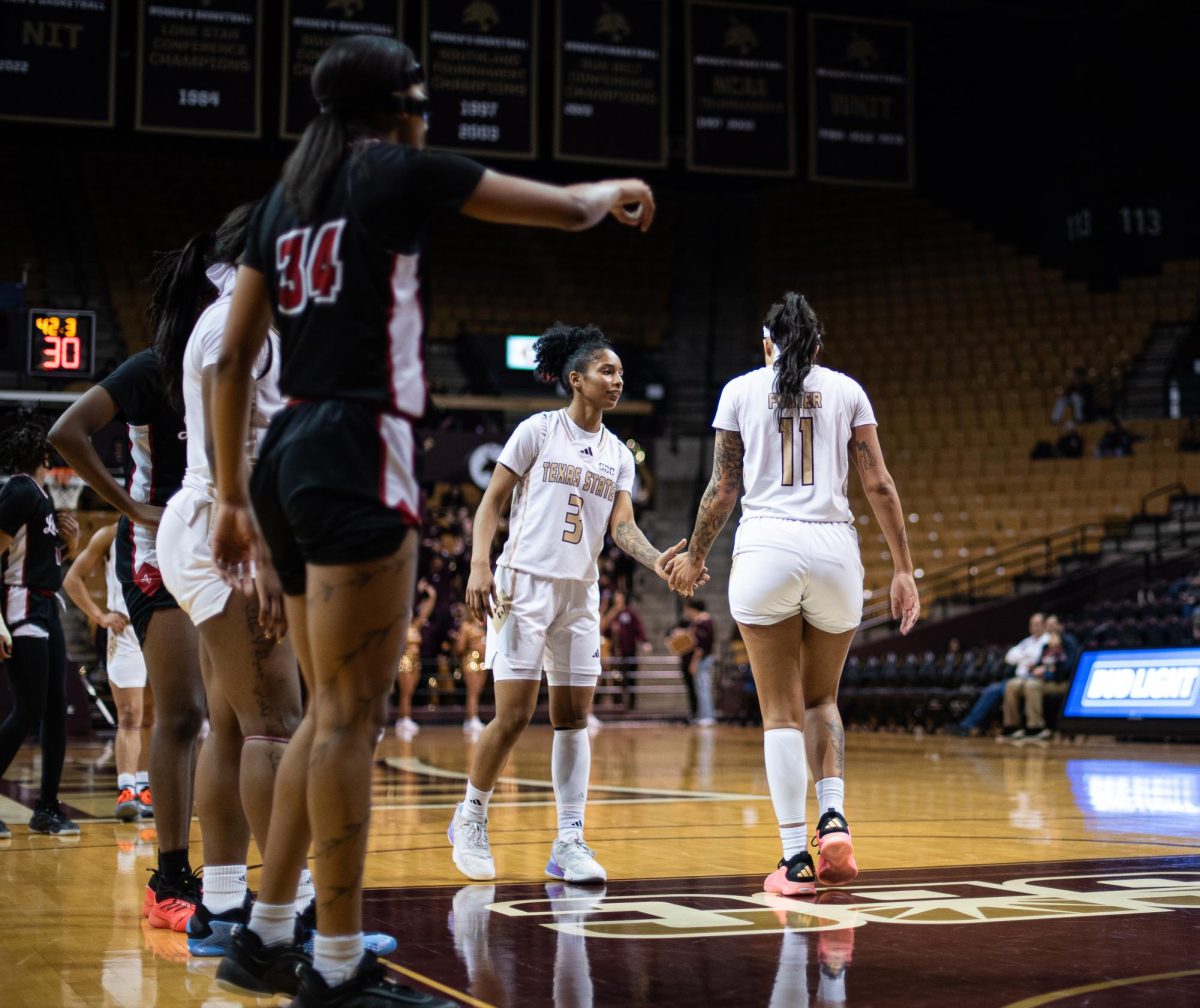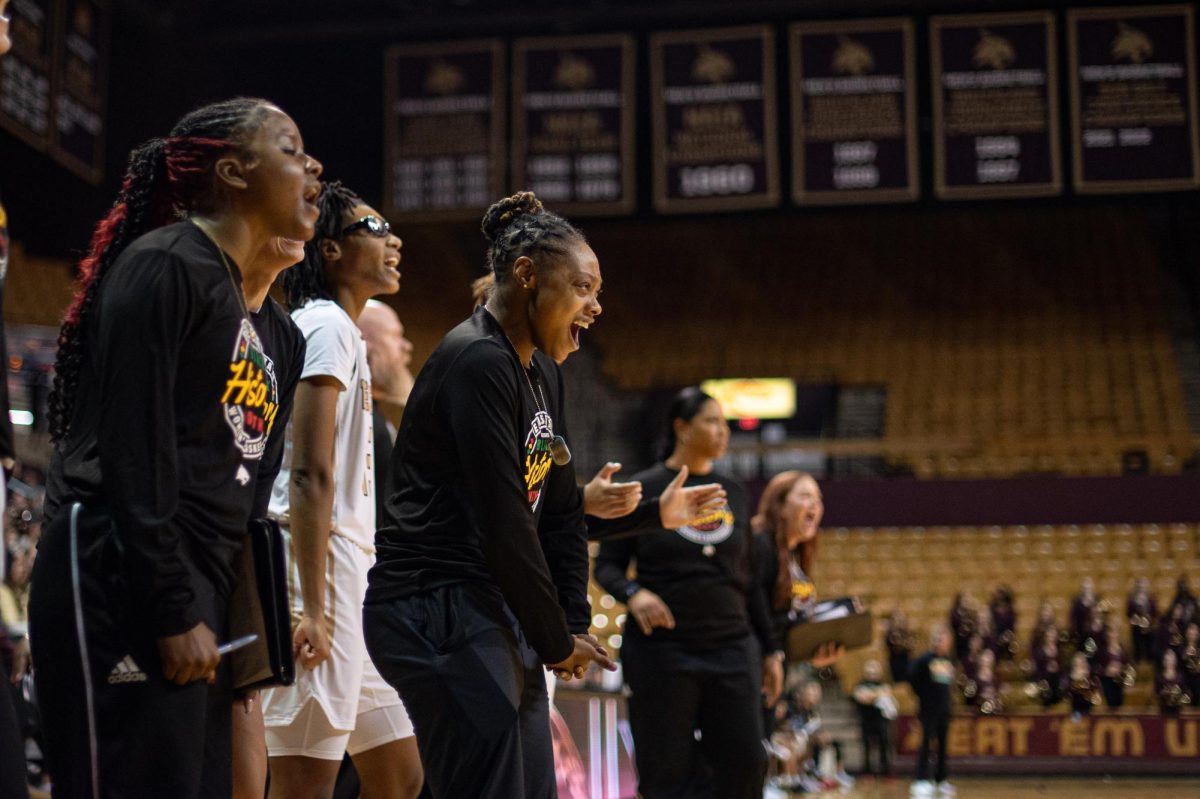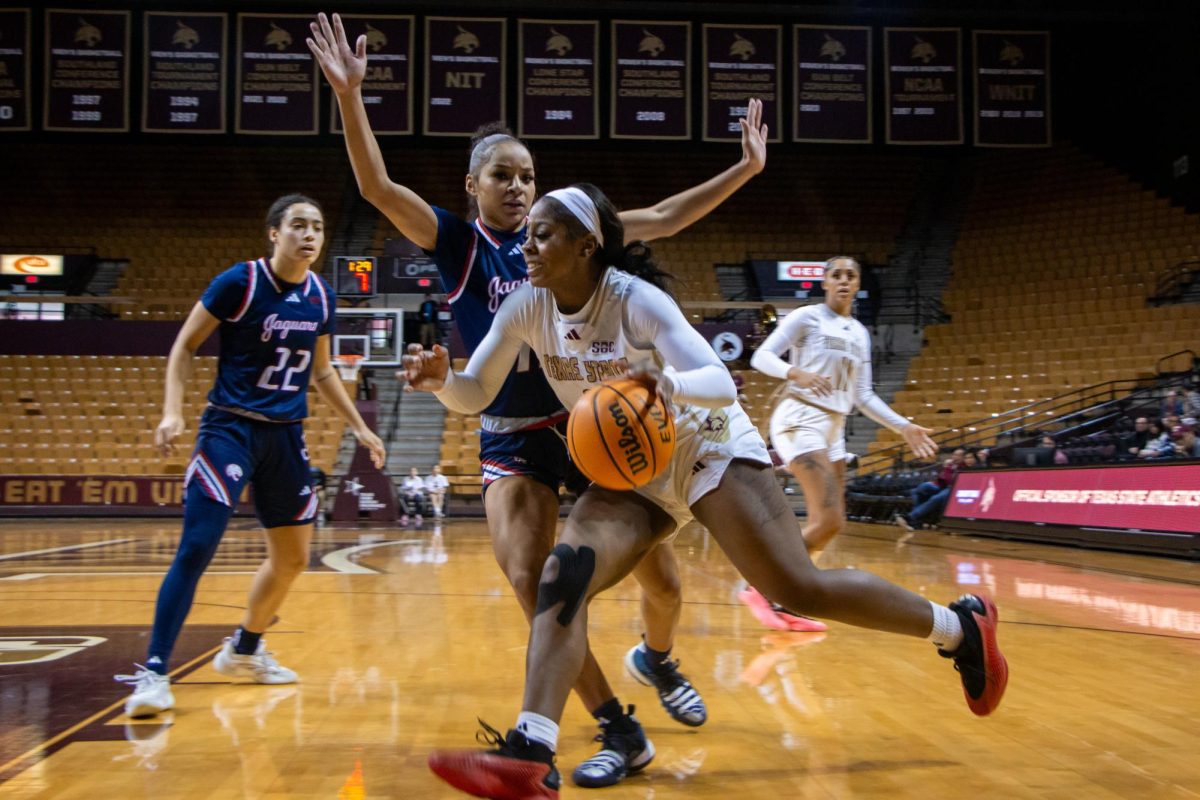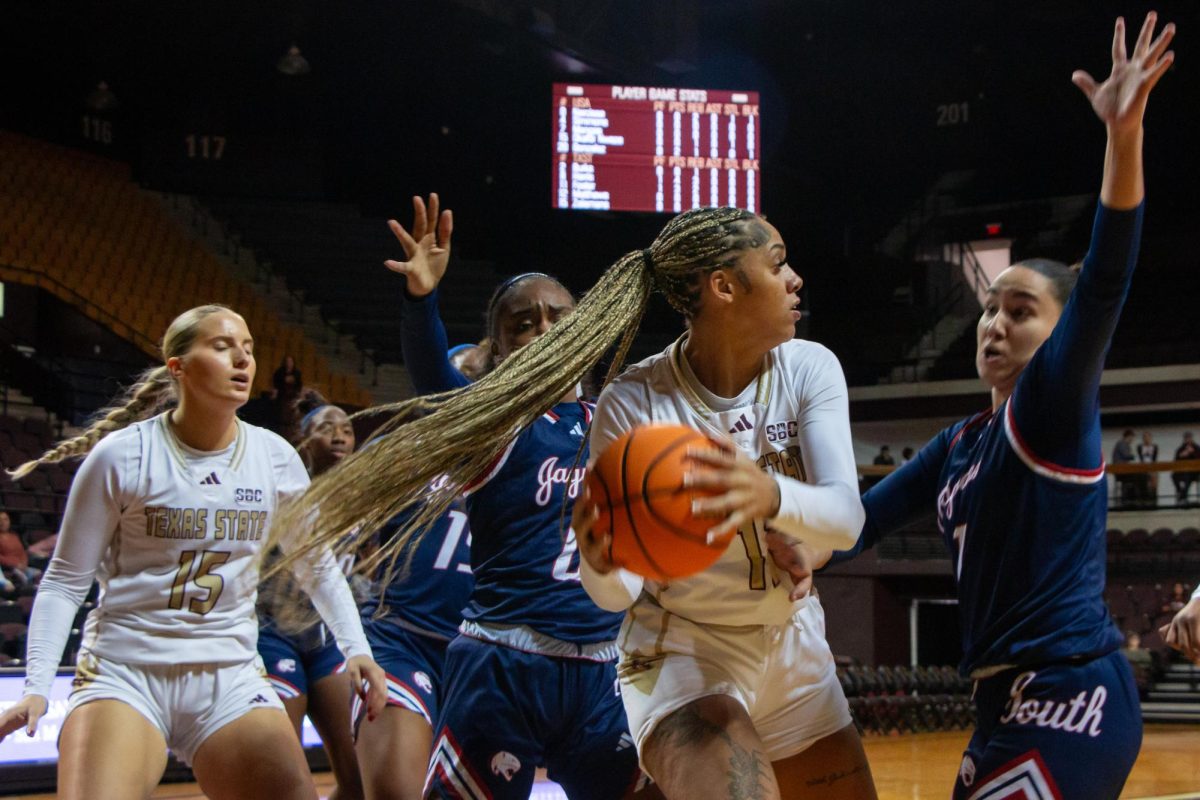While dealing with abrupt cancellations and schedule changes, the women’s and men’s basketball teams faced an uphill climb as they played the vast majority of their conference schedules in the form of back-to-back games.
The rigorous schedule required teams to play two games usually less than 24 hours apart, affecting the players’ mental and physical preparation.
The physical demand of players to compete in games in such short timeframes would play a big role in the athletes’ performance. The back-to-back game days took up the majority of the weekends, leaving little to no time to fully recover from minor injuries.
Zenarae Antoine, women’s basketball head coach, says nutrition, hydration and sleep were key factors in the recovery process. Additional steps were taken to accommodate each players’ needs prior to the next game.
“We try to make sure we’re eating healthy meals that’ll help them throughout the day and leading up to the game, making sure that we’re hydrating, and we are eating foods that are going to help them perform,” Antoine says. “With each young woman, it’s different as for what her needs are and with her body making sure she’s prepared. Once you hit the game, there’s very little you can do at that point once your body is fired up and you’re on the go, outside of pure rest.”
Gabby Standifer, a graduate guard/forward on the women’s basketball team, says the workload was lightened during the early portions of the week to recover from the previous doubleheader and to rehabilitate for the following set of games.
“Usually we always have Sunday off, and that’s for rehab and treatment,” Standifer says. “Mondays, if you’ve played a good amount of minutes, you also have another day for rehab and treatment…it’s really light. I think it’s really helped for the back-to-back games and then practices aren’t going too long.”
Antoine says there are multiple layers to playing back-to-back games. She sees similarities between the back-to-back schedule and playing in tournaments.
“Psychologically, that does go in to play that you’re playing the same team … so that plays into the mental fatigue that I think happens at times, as well as the physical fatigue,” Antoine says.
Isiah Small, men’s basketball senior forward, says back-to-back games had an impact on the competitive aspect as well. The process after each game required the team to completely refocus and prepare for the next contest in what felt like little to no time.
“A whole lot of film and just rehabbing; you have to have the right mindset too,” Small says. “If you lose, okay there’s the next one, and if you win you have to have the same mindset onto the next game.”
Antoine says she sees the exhaustion on both sides of the court during games. She adds that coaches try to find as many opportunities as possible to rest their players.
“In some cases, for some student-athletes, there’s a mental fatigue because you’re playing the same opponent multiple times but, for others, it’s a physical fatigue,” Antoine says. “Just being able to fight through that you definitely see when they, as we say, hit a wall … when you hit that wall it’s really going to come down to who has the mental capacity to fight through it until you get the time out, so you’ll notice coaches are taking more time-outs.”
Both the men’s and women’s basketball teams will soon take on the Sun Belt Conference tournament. The women’s team will face Georgia Southern on March 5, while the conference champion men’s team gets a first-round bye.
The rigorous schedule required teams to play two games usually less than 24 hours apart, affecting the players’ mental and physical preparation.
The physical demand of players to compete in games in such short timeframes would play a big role in the athletes’ performance. The back-to-back game days took up the majority of the weekends, leaving little to no time to fully recover from minor injuries.
Zenarae Antoine, women’s basketball head coach, says nutrition, hydration and sleep were key factors in the recovery process. Additional steps were taken to accommodate each players’ needs prior to the next game.
“We try to make sure we’re eating healthy meals that’ll help them throughout the day and leading up to the game, making sure that we’re hydrating, and we are eating foods that are going to help them perform,” Antoine says. “With each young woman, it’s different as for what her needs are and with her body making sure she’s prepared. Once you hit the game, there’s very little you can do at that point once your body is fired up and you’re on the go, outside of pure rest.”
Gabby Standifer, a graduate guard/forward on the women’s basketball team, says the workload was lightened during the early portions of the week to recover from the previous doubleheader and to rehabilitate for the following set of games.
“Usually we always have Sunday off, and that’s for rehab and treatment,” Standifer says. “Mondays, if you’ve played a good amount of minutes, you also have another day for rehab and treatment…it’s really light. I think it’s really helped for the back-to-back games and then practices aren’t going too long.”
Antoine says there are multiple layers to playing back-to-back games. She sees similarities between the back-to-back schedule and playing in tournaments.
“Psychologically, that does go in to play that you’re playing the same team … so that plays into the mental fatigue that I think happens at times, as well as the physical fatigue,” Antoine says.
Isiah Small, men’s basketball senior forward, says back-to-back games had an impact on the competitive aspect as well. The process after each game required the team to completely refocus and prepare for the next contest in what felt like little to no time.
“A whole lot of film and just rehabbing; you have to have the right mindset too,” Small says. “If you lose, okay there’s the next one, and if you win you have to have the same mindset onto the next game.”
Antoine says she sees the exhaustion on both sides of the court during games. She adds that coaches try to find as many opportunities as possible to rest their players.
“In some cases, for some student-athletes, there’s a mental fatigue because you’re playing the same opponent multiple times but, for others, it’s a physical fatigue,” Antoine says. “Just being able to fight through that you definitely see when they, as we say, hit a wall … when you hit that wall it’s really going to come down to who has the mental capacity to fight through it until you get the time out, so you’ll notice coaches are taking more time-outs.”
Both the men’s and women’s basketball teams will soon take on the Sun Belt Conference tournament. The women’s team will face Georgia Southern on March 5, while the conference champion men’s team gets a first-round bye.



